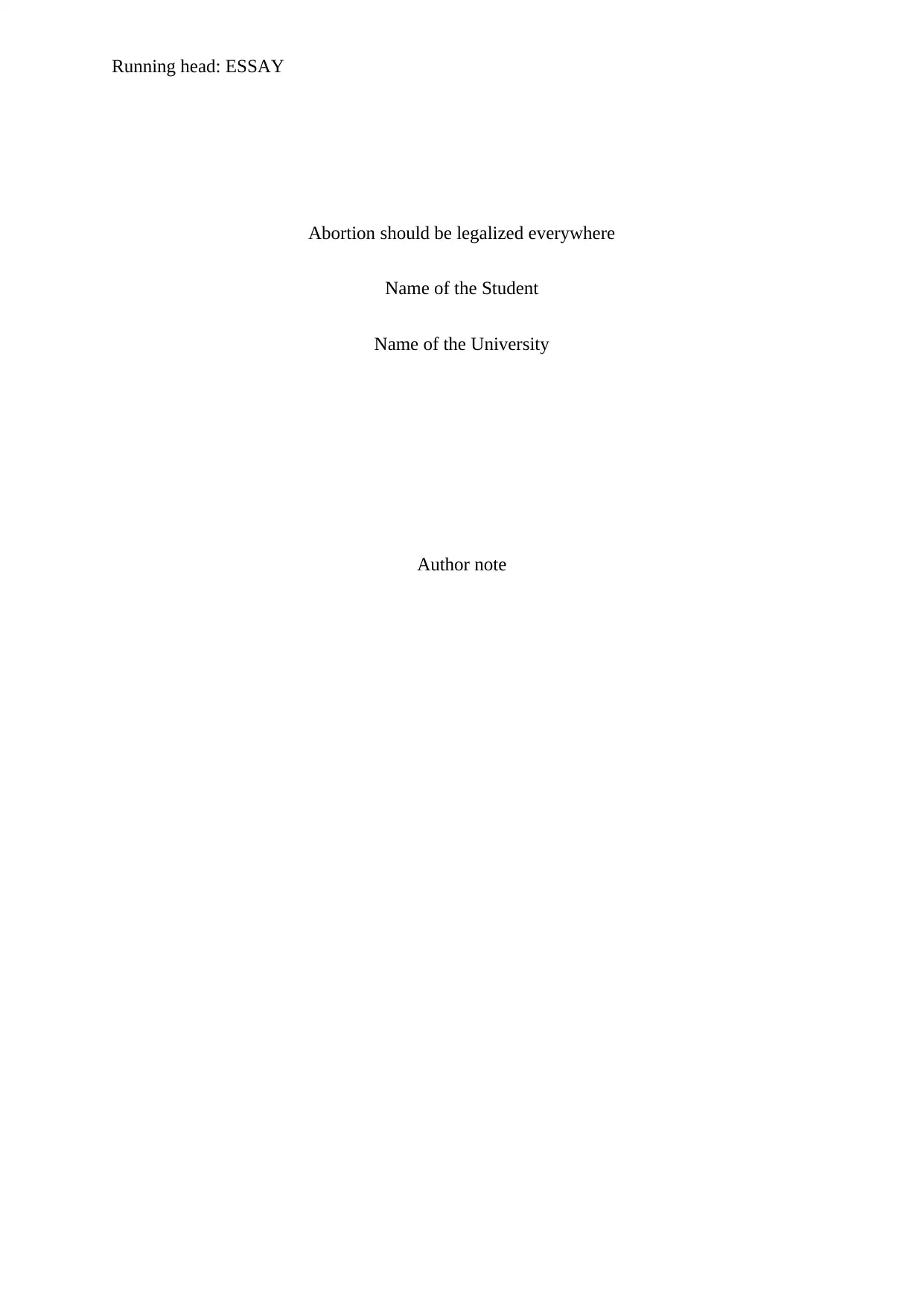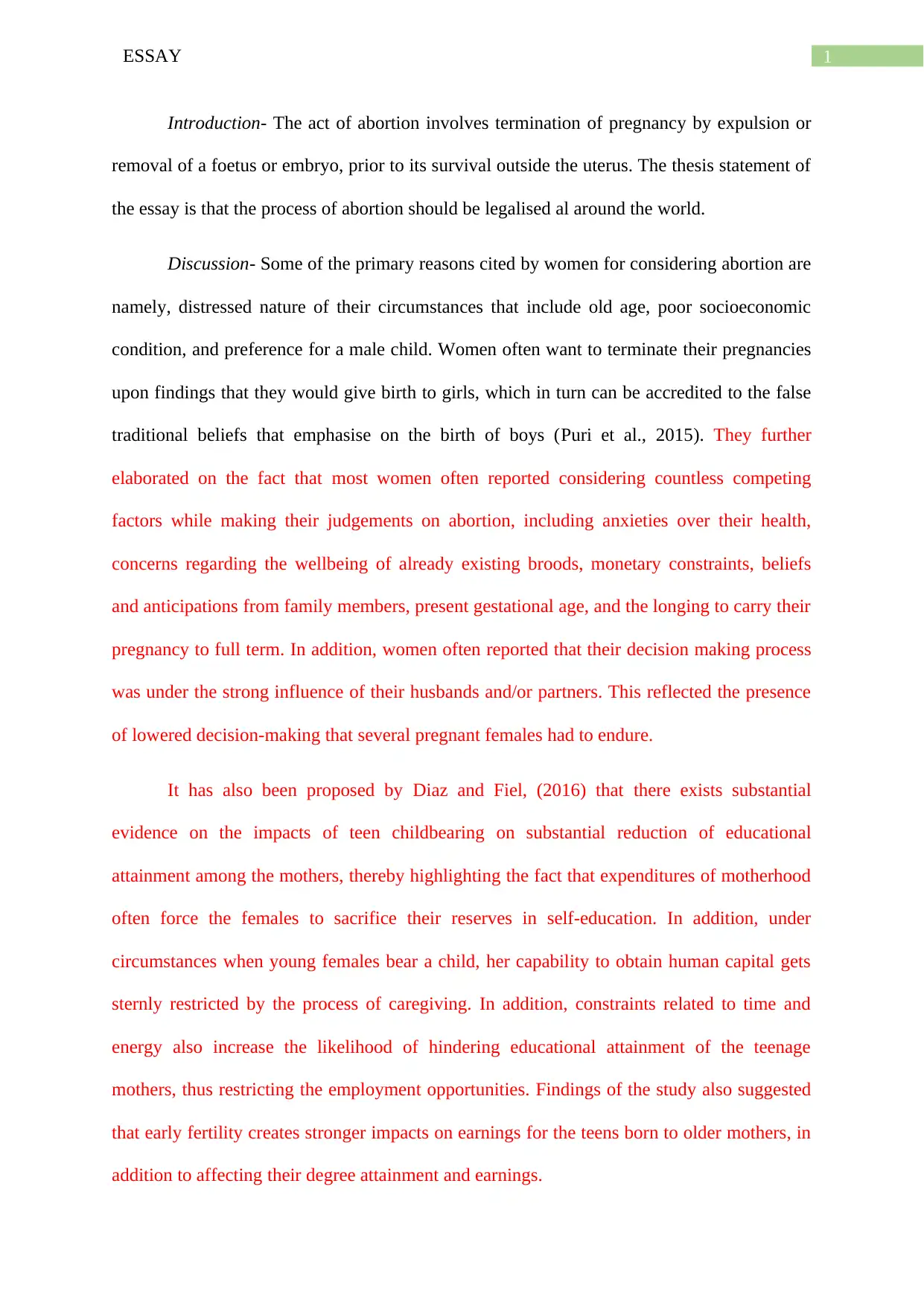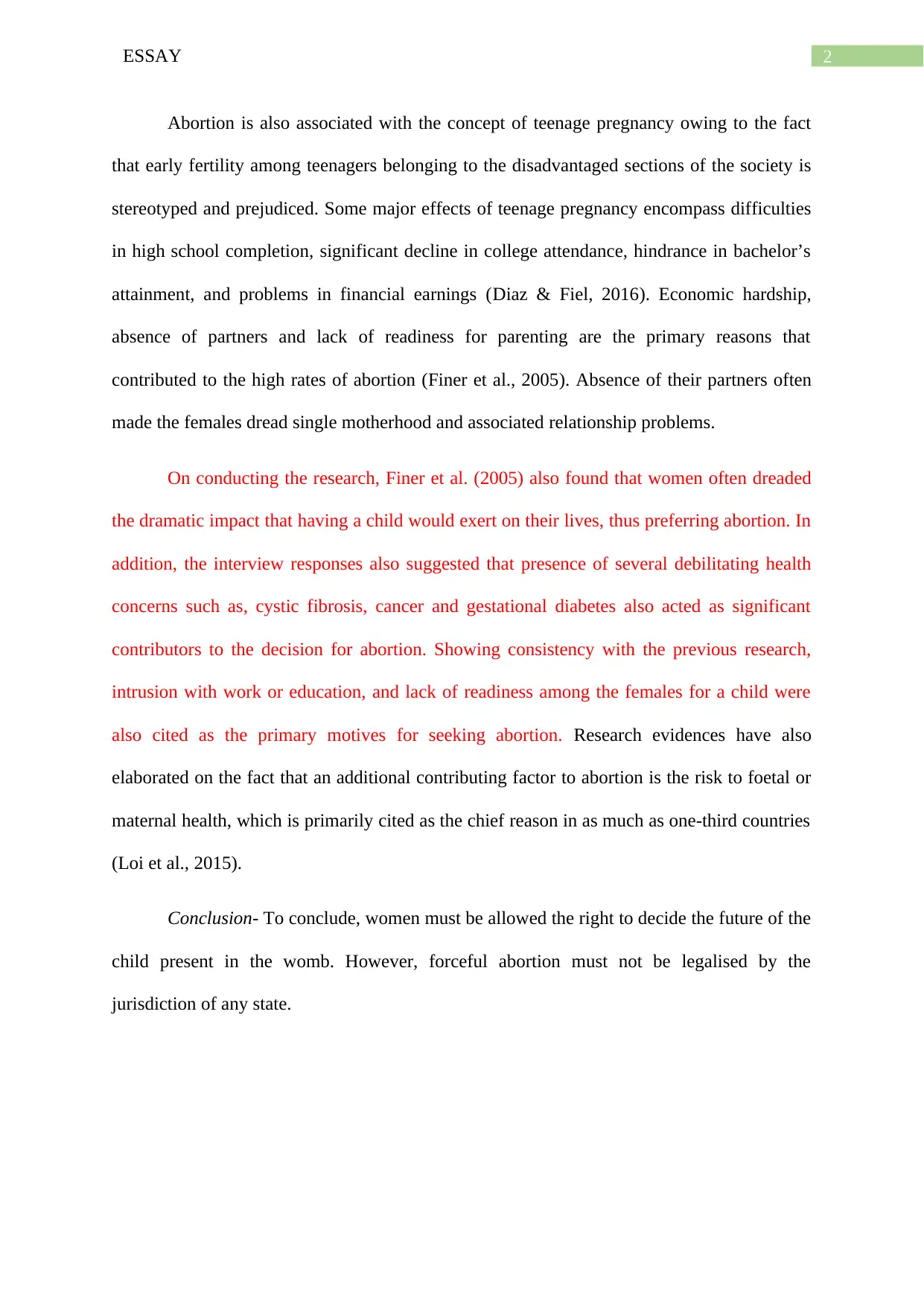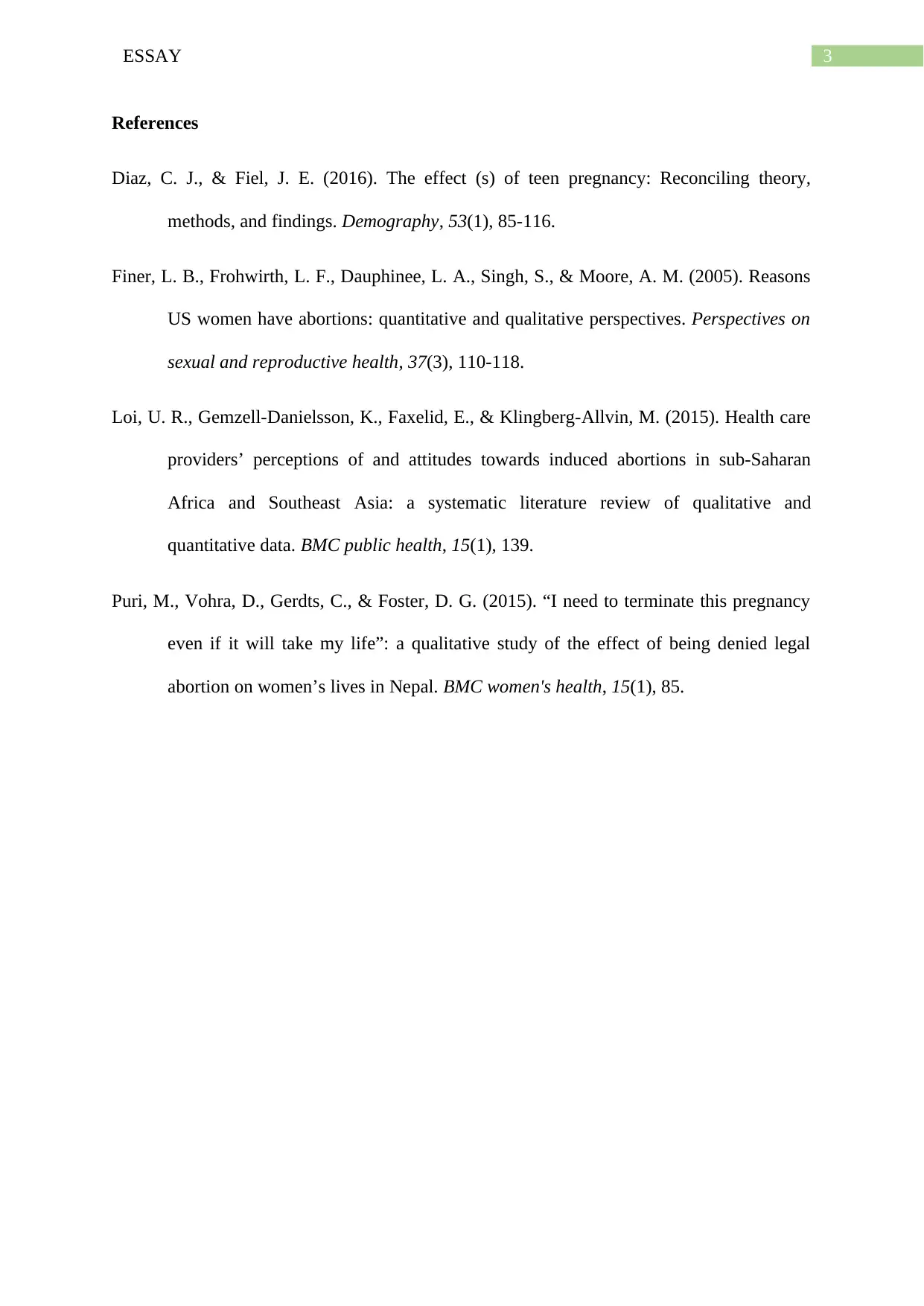The Importance of Legalizing Abortion: An Argumentative Essay
VerifiedAdded on 2023/01/20
|4
|919
|81
Essay
AI Summary
This essay argues for the global legalization of abortion, emphasizing women's rights and socioeconomic factors. It highlights reasons women seek abortions, including distress, poor socioeconomic conditions, and gender preference. The essay explores the impact of teenage pregnancy on education and economic opportunities, noting that early fertility can severely restrict a young woman's potential. It references studies that show women often consider factors like health concerns, family well-being, financial constraints, and gestational age when deciding on abortion. The essay also addresses the influence of partners on women's decisions and the potential risks to fetal or maternal health. Ultimately, the essay concludes that women should have the right to choose, advocating for legal abortion while opposing forced abortions. Desklib provides access to similar essays and study tools for students.
1 out of 4





![[object Object]](/_next/static/media/star-bottom.7253800d.svg)